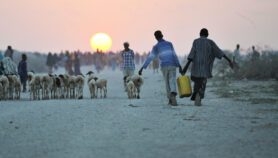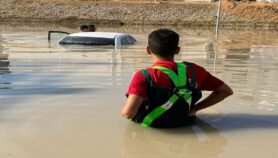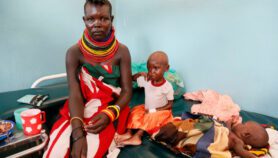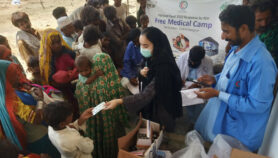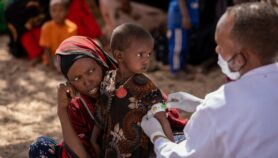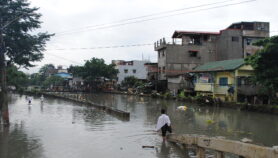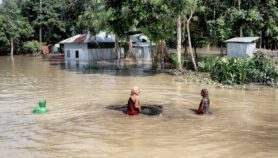By: Helen Mendes
Send to a friend
The details you provide on this page will not be used to send unsolicited email, and will not be sold to a 3rd party. See privacy policy.
[CURITIBA, BRAZIL] A detailed global database has revealed that the number of landslide-related deaths worldwide has been greatly underestimated by previous surveys.
The database was compiled by David Petley, a professor of geography at Durham University’s International Landslide Centre, in the United Kingdom.
Writing in the journal Geology, Petley reports that a total of 2,620 fatal landslides were recorded worldwide in the period 2004 to 2010. These landslides caused 32,322 deaths — a number over four times higher than the number of deaths indicated by previous databases — Petley writes. "That means that [landslides are a] much more significant global hazard than previously thought," he told SciDev.Net.
Landslides occur primarily in Asia, and can have different triggers, including earthquakes, hurricanes and rainfall. "The northern part of South Asia, along the southern edges of the Himalayas, is a hotspot for landslides," Petley said.
An important difference between this database and previous systems is that, in the past, deaths from landslides have been recorded as being caused by a trigger event, rather than by the landslide itself.
Furthermore, while previous databases only collected data from events where more than ten people were killed, the new system registers events that have killed as few as one. "There are very large numbers of landslides that kill between one and nine people. My dataset picks [these] up," said Petley.
A global landslide database is important because it empowers countries to respond appropriately to hazards and reduce their impact, Petley told SciDev.Net. "If we want engineering solutions, better land use management, and even the relocation of people, the first thing is to identify where, how and when [landslides] happen," he said. By using the database and working in appropriate ways, "we should be able to cut the number of losses significantly," he said.
Eduardo Macedo, a geologist from Brazil’s Institute for Technological Research, and compiler of a Brazilian landslide database, told SciDev.Net that Petley’s study confirms the expectations of researchers working in the field.
It represents "the first global study to take into consideration events with few victims — so it is very important," Macedo said.
Moreover, he added, it sheds light on the link between human activity and landslides. "The data clearly show that where there is more human occupation, more landslides happen," he said.
Marcelo Motta, a geographer at the Pontifical Catholic University of Rio de Janeiro, told SciDev.Net that, in the case of Brazil, official landslide data are unreliable, as they are "always manipulated to calm public opinion, which is absurd".
There is expert landslide knowledge available, Motta said, but this is often ignored by urban planners who "lack plans to distribute housing in safe places". Fundamentally, "what is lacking is the transformation of knowledge into planning and action."
References
Geology doi: 10.1130/G33217.1 (2012)





